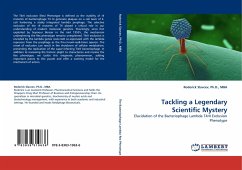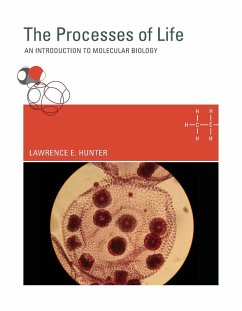
Tackling a Legendary Scientific Mystery
Elucidation of the Bacteriophage Lambda T4rII Exclusion Phenotype
Versandkostenfrei!
Versandfertig in 6-10 Tagen
52,99 €
inkl. MwSt.

PAYBACK Punkte
26 °P sammeln!
The T4rII exclusion (Rex) Phenotype is defined as the inability of rII mutants of bacteriophage T4 to generate plaques on a cell lawn of E. coli harboring a stably integrated lambda prophage. The selective exclusion of the rII mutants of T4 played a critical role in our understanding of modern molecular genetics. Shockingly, since first exploited by Seymour Benzer in the mid 1950's, the mechanism underpinning the Rex phenotype remains unexplained. T4rII exclusion is encoded by the lambda genes rexA-rexB co-expressed with the lambda repressor from the prophage as the Pm-cI-rexA-rexB-timm operon...
The T4rII exclusion (Rex) Phenotype is defined as the inability of rII mutants of bacteriophage T4 to generate plaques on a cell lawn of E. coli harboring a stably integrated lambda prophage. The selective exclusion of the rII mutants of T4 played a critical role in our understanding of modern molecular genetics. Shockingly, since first exploited by Seymour Benzer in the mid 1950's, the mechanism underpinning the Rex phenotype remains unexplained. T4rII exclusion is encoded by the lambda genes rexA-rexB co-expressed with the lambda repressor from the prophage as the Pm-cI-rexA-rexB-timm operon. The onset of exclusion can result in the shutdown of cellular metabolism, preventing the replication of the super-infecting T4rII bacteriophage. In addition to reviewing the historic plight to characterize and resolve the Rex phenotype, we tackle this enigmatic phenomenon, adding important pieces to this puzzle and offer a working model for the mechanism of action.












